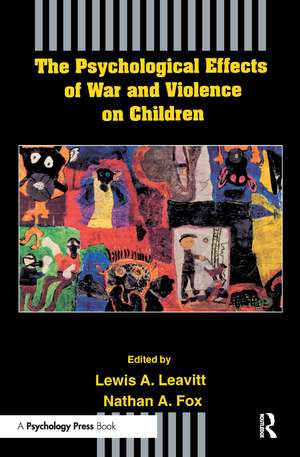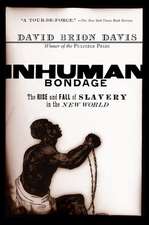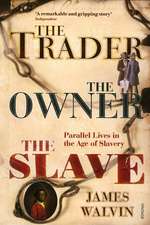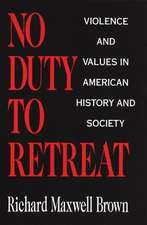The Psychological Effects of War and Violence on Children
Editat de Lewis A. Leavitt, Nathan A. Foxen Limba Engleză Paperback – oct 1993
* to summarize research on the subject with particular emphasis on the Gulf War;
* to use this information to formulate an outline of what current knowledge suggests are reasonable approaches to public mental health intervention; and
* to develop an agenda for future research necessary for improving clinical efforts in varying international conflicts.
A significant collection of diverse perspectives attending to a diversity of cultural and political contexts, the contributors offer many conclusions about important dimensions for analyzing the effects of violence on children. Suggesting informed approaches to public mental health efforts which can be implemented, the work presented here directs attention to the need for interdisciplinary collaboration among researchers and clinicians to better understand the effects of exposure to violence on the psychological well being of children and the optimal modes of remediation on individual, family, and community levels.
Preț: 463.67 lei
Preț vechi: 545.50 lei
-15% Nou
Puncte Express: 696
Preț estimativ în valută:
88.72€ • 96.68$ • 74.76£
88.72€ • 96.68$ • 74.76£
Carte tipărită la comandă
Livrare economică 23 aprilie-07 mai
Preluare comenzi: 021 569.72.76
Specificații
ISBN-13: 9780805811728
ISBN-10: 0805811729
Pagini: 400
Ilustrații: illustrations
Dimensiuni: 152 x 229 x 21 mm
Greutate: 0.53 kg
Ediția:1
Editura: Taylor & Francis
Colecția Psychology Press
Locul publicării:Oxford, United Kingdom
ISBN-10: 0805811729
Pagini: 400
Ilustrații: illustrations
Dimensiuni: 152 x 229 x 21 mm
Greutate: 0.53 kg
Ediția:1
Editura: Taylor & Francis
Colecția Psychology Press
Locul publicării:Oxford, United Kingdom
Public țintă
ProfessionalCuprins
Contents: L.A. Leavitt, N.A. Fox, Introduction. Part I:Overview. E. Goldson, War Is Not Good for Children. J. Garbarino, K. Kostelny, Children's Response to War: What Do We Know? D. Cicchetti, S.L. Toth, M. Lynch, The Developmental Sequelae of Child Maltreatment: Implications for War-Related Trauma. Part II:The Middle East Conflict: Its Effect on Children. A. Klingman, A. Sagi, A. Raviv, The Effect of War on Israeli Children. N. Shilo-Cohen, Israeli Children Paint War. C.W. Greenbaum, C. Erlich, Y.H. Toubiana, Settler Children and the Gulf War. S. Masalha, The Effect of Prewar Conditions on the Psychological Reactions of Palestinian Children to the Gulf War. N. Bat-Zion, R. Levy-Shiff, Children in War: Stress and Coping Reactions Under the Threat of Scud Missile Attacks and the Effect of Proximity. R.J. Apfel, B. Simon, On the Value of a Psychoanalytic Perspective in Research on Children in War: Group Interviews of Israeli and Palestinian Children During the Gulf War and 1 Year Later. K. Nader, R.S. Pynoos, The Children of Kuwait After the Gulf Crisis. Part III:International Perspectives on Children and Violence. C. Liddell, J. Kemp, M. Moema, The Young Lions: South African Children and Youth in Political Struggle. E. Cairns, I.J. Toner, Children and Political Violence in Northern Ireland: From Riots to Reconciliation. S. Goldberg, Violence at a Distance: Thinking About the Nuclear Threat. J.E. Richters, P. Martinez, Children as Victims of and Witnesses to Violence in a Washington, D.C. Neighborhood. Part IV:Perspectives on Intervention. S. Marans, D.J. Cohen, Children and Inner-City Violence: Strategies for Intervention. T. Field, Israeli Children in the Gulf War: Problems of Masks and Peer Separation. A. Raviv, The Use of Hotline and Media Interventions in Israel During the Gulf War. C.R. Figley, War-Related Stress and Family-Centered Intervention: American Children and the Gulf War.
Recenzii
"In an emerging field of research on the consequences of children's exposure to violence, this volume represents a major contribution. An important resource guide for scholars and clinicians."
—CHOICE
"There are many thought provoking ideas for the conflicts of the future which seem sadly inevitable."
—Journal of Traumatic Stress
—CHOICE
"There are many thought provoking ideas for the conflicts of the future which seem sadly inevitable."
—Journal of Traumatic Stress
Notă biografică
Lewis A. Leavitt, Nathan A. Fox












